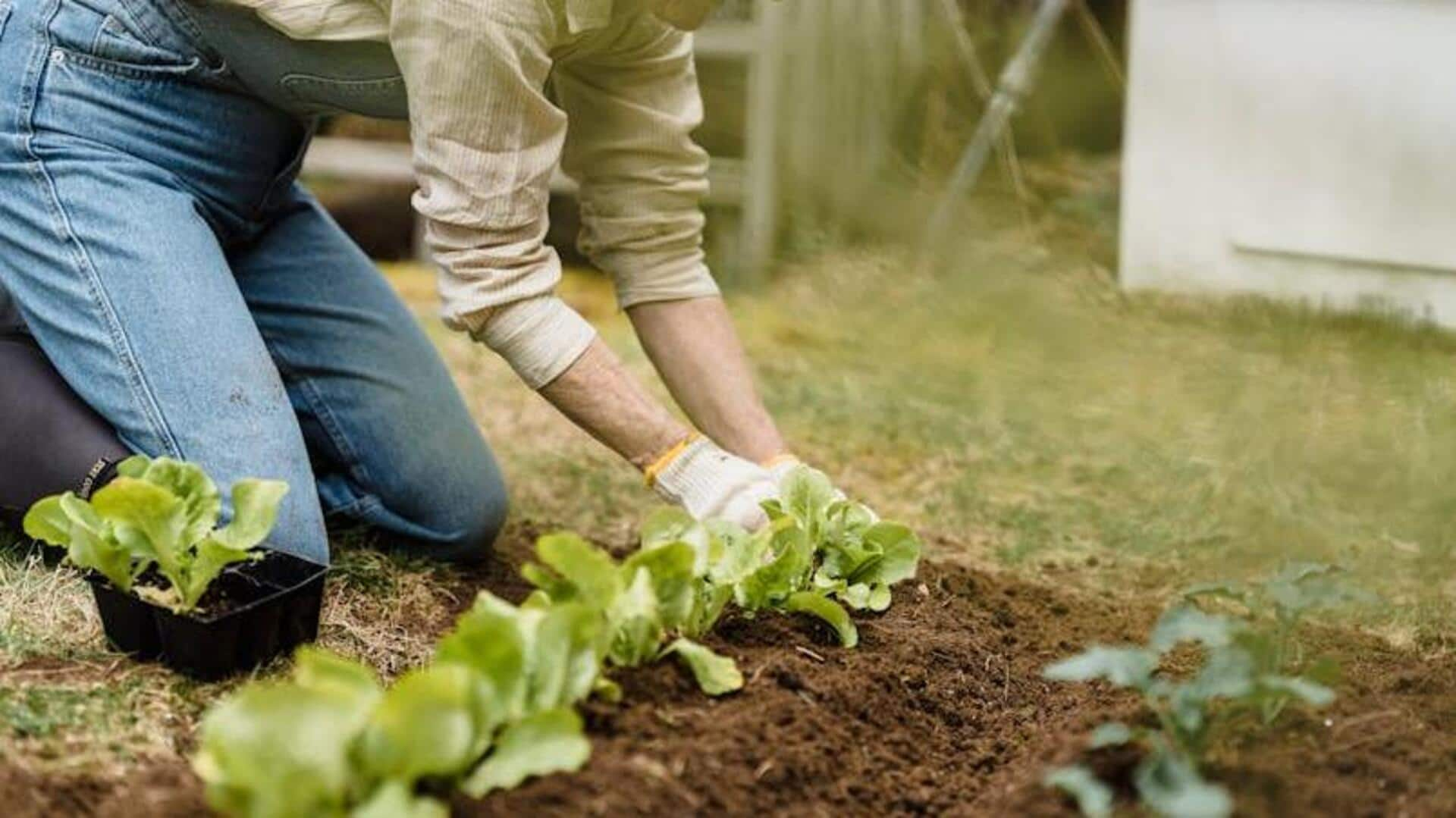
Invigorating wellness with DIY vegetable gardening
What's the story
Home vegetable gardening is more than just a hobby; it's a holistic approach to improving your physical and mental health. Not only does it supply you with fresh produce, but it also doubles as a form of physical exercise. This article explores how starting your own vegetable garden can lead to a healthier lifestyle. It provides a step-by-step guide and tips for beginners.
Location
Choosing the right location
The first step in setting up a vegetable garden is selecting a sunny location. Most vegetables require a minimum of six hours of sunlight each day. Ensure the soil is of good quality and well-draining to prevent waterlogging, which can harm plant roots. Spend $10-$20 to get a soil testing kit. It will help confirm that your chosen spot fulfills all the necessary conditions for a thriving garden.
Scale
Starting small
For beginners, starting small is the key to successfully manage your garden without getting overwhelmed. A few pots or a small plot of two by two meters is enough to start with. You can understand the needs of different plants without the commitment of a large area. Then, as you gain confidence and experience, you can gradually increase the size of your garden.
Choices
Selecting your vegetables
Selecting the right vegetables to grow is crucial for a successful gardening experience. Choose easy-to-grow vegetables such as tomatoes, lettuce, carrots, and cucumbers for your first season. These plants are more resistant to pests and diseases and require a relatively simple care routine. Plus, think about what you enjoy eating; there's no use growing something that won't end up on your plate.
Hydration
Watering wisely
The right amount of watering is key to vegetable growth, and it can differ greatly depending on the specific plant. As a general guideline, most vegetable gardens require approximately one inch (2.5 cm) of water per week, either from rainfall or watering. Water your plants early in the morning. This ensures moisture on leaves has time to evaporate during the day, minimizing disease risk.
Education
Continuous learning
Gardening imparts valuable lessons in nurturing plants, managing pests, and enhancing soil through composting and crop rotation, which enriches soil naturally. Ditching chemical fertilizers (that come with a price tag of $15-$30 per bag) is a good thing. And, there are plenty of local clubs or online forums where you can gain wisdom from seasoned gardeners who generously share their knowledge.